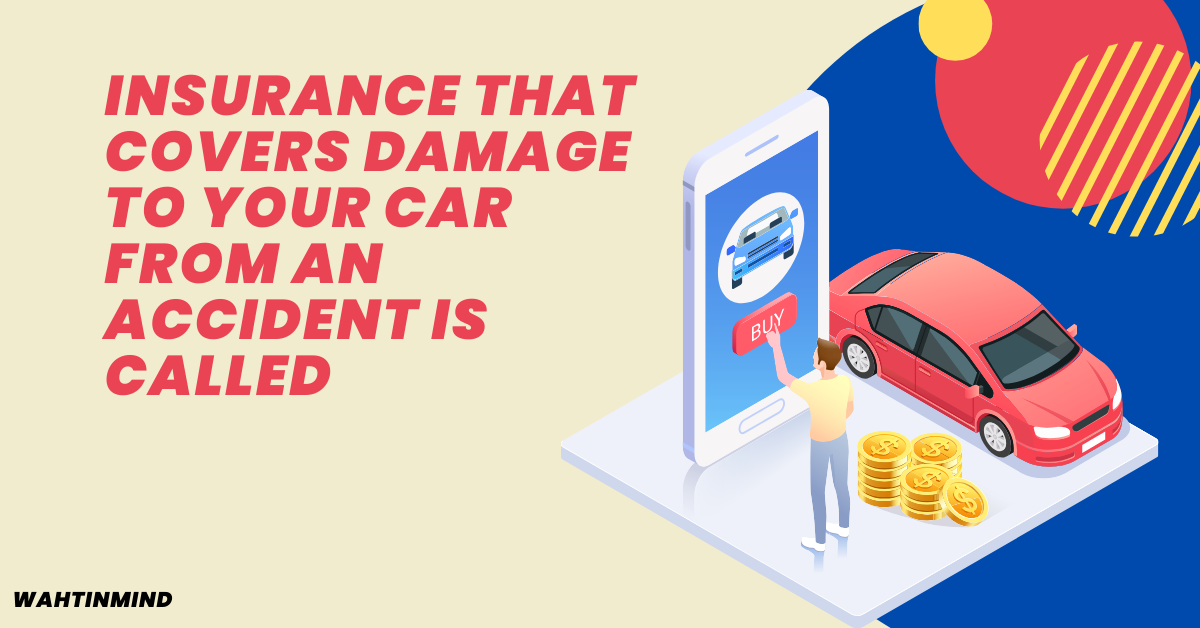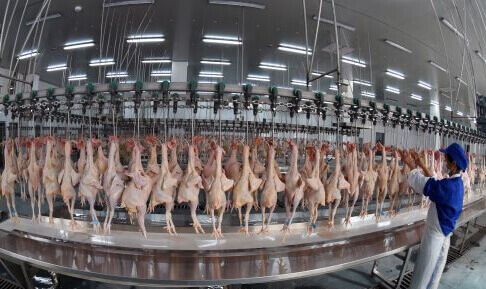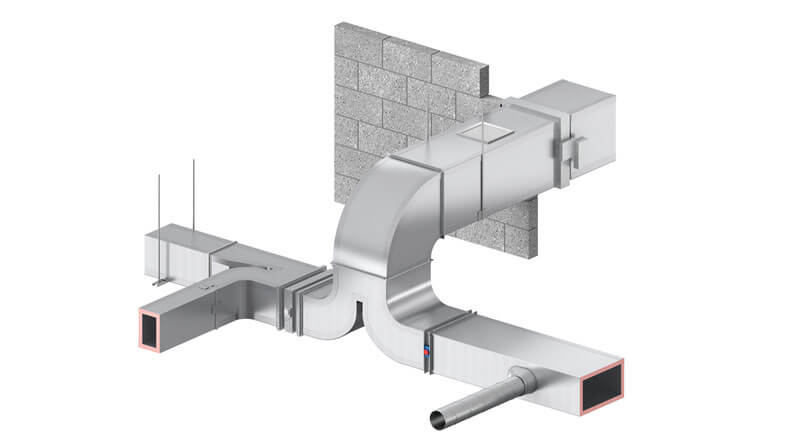When it comes to protecting your vehicle from unforeseen accidents, having the right insurance coverage is essential. Collision insurance is a crucial component in safeguarding your car against damages resulting from accidents. But what exactly does this type of insurance entail?
Understanding the nuances of collision insurance, including its coverage limitations and how it differs from other policies, is vital for every car owner. As we unravel the intricacies of collision insurance, you’ll discover why this coverage is a cornerstone for complete vehicle protection.
Read Also:Innovations Driving ePlus4Car
Definition of Collision Insurance
Collision insurance is a type of coverage that helps pay for repairs or replacement of your vehicle if it’s damaged in a collision with another vehicle or object. This insurance provides essential benefits by making sure that the costs associated with repairing or replacing your vehicle are covered, giving you peace of mind in case of an accident.
The coverage benefits of collision insurance include financial protection against damage resulting from collisions, whether with another vehicle or an object such as a tree or guardrail. This type of insurance can be particularly valuable for individuals who rely on their vehicles for daily transportation or work purposes.
However, it is important to be aware of the policy exclusions that may apply to collision insurance. Common exclusions may include intentional damage, acts of vandalism, or collisions that occur while the insured driver is under the influence of drugs or alcohol. Understanding these exclusions can help policyholders make informed decisions regarding their coverage and make sure they are adequately protected in case of an accident.
Coverage Details and Limitations
When considering the coverage details and limitations of car damage insurance, it is important to understand the specific inclusions and exclusions that may impact the extent of protection offered in various situations. Coverage exclusions are conditions or situations that are not covered by the insurance policy. Common exclusions in car damage insurance may include intentional damage, normal wear and tear, mechanical breakdowns, and driving under the influence. It’s critical for policyholders to review these exclusions carefully to avoid any surprises in the event of a claim.
Another important aspect to take into account is the deductible options available in car damage insurance. A deductible is the amount of money the policyholder is responsible for paying before the insurance coverage kicks in. Higher deductibles typically result in lower premiums, while lower deductibles lead to higher premiums. Policyholders should choose a deductible amount that aligns with their financial situation and risk tolerance.
Understanding coverage exclusions and deductible options is essential for making informed decisions when selecting car damage insurance to ensure adequate protection in case of an accident.
How Collision Insurance Differs From Other Policies
Collision insurance distinguishes itself from other policies by providing specific coverage for damages resulting from car collisions, guaranteeing a clear overview of the claim process to policyholders, and facilitating a detailed comparison of costs with other types of insurance. This type of insurance guarantees that policyholders are protected in case their vehicle is damaged due to an accident, underscoring the importance of comprehending the unique features it offers compared to other insurance options. By outlining the coverage specifics, claim procedures, and cost breakdowns, individuals can make informed decisions regarding their insurance needs and financial protection.
Coverage Specifics Explained
One distinguishing factor between collision insurance and other policies lies in the specific coverage details tailored to address various types of vehicular damage. Coverage exclusions in collision insurance typically involve instances where the policyholder is at fault, such as intentionally causing an accident.
Additionally, certain policies may exclude coverage for damage resulting from natural disasters or acts of vandalism. Significant deductible options play a critical role in collision insurance, allowing policyholders to choose the amount they are willing to pay out of pocket before the insurance coverage kicks in.
Higher deductibles often result in lower premiums, while lower deductibles mean higher upfront costs but less out-of-pocket expenses in the event of a claim. Understanding these nuances can help individuals make informed decisions when selecting the right coverage for their vehicles.
Claim Process Overview
To navigate the differences in claim processes between collision insurance and other policies, understanding the distinct procedures for filing and resolving claims is essential. When it comes to collision insurance, the claim settlement process often involves the policyholder selecting a repair shop from a list of preferred providers approved by the insurance company. This guarantees that the repairs are done efficiently and to the insurer’s standards.
In contrast, other types of insurance may allow more flexibility in choosing a repair shop, but this could impact the reimbursement process. Being knowledgeable about the repair shop options allowed under your collision coverage can streamline the claims process and help you get back on the road quickly and safely.
Cost Comparison Breakdown
A key aspect that sets collision insurance apart from other policies is the breakdown of costs when it comes to repair and reimbursement procedures. Collision insurance specifically covers the cost of repairing or replacing your car after an accident, regardless of fault. This differs from liability insurance, which covers damage to the other party’s vehicle when you are at fault.
When comparing collision insurance to comprehensive coverage, the main distinction lies in the types of incidents covered – collision insurance focuses on accidents involving your vehicle, while comprehensive coverage includes damage from non-collision events like theft or natural disasters. Cost saving strategies for collision insurance may involve choosing a higher deductible to lower premiums, and premium comparison is important to make sure you get the best value for your coverage.
Factors Affecting Collision Insurance Premiums
Various factors play a significant role in determining collision insurance premiums for vehicle owners. The premium rates for collision insurance are influenced by several key factors that insurance companies take into consideration when calculating the cost of coverage.
One important factor is the driver’s age and driving history. Younger drivers or those with a history of accidents may face higher premiums due to the increased risk they pose. The type of vehicle being insured also affects the premium rates, with luxury or high-performance cars typically requiring higher premiums.
Additionally, the location where the vehicle is primarily driven and parked can impact the cost of collision insurance, as areas with higher rates of accidents or theft may lead to higher premiums. The coverage amount and deductible chosen by the policyholder are also significant factors in determining the overall cost of collision insurance. By understanding these factors, vehicle owners can make informed decisions when selecting collision insurance coverage that best suits their needs and budget.
Importance of Collision Insurance for Car Owners
Collision insurance is an important component of car ownership, providing essential financial protection in the event of unexpected vehicular damage. This type of insurance offers various benefits to car owners, such as coverage for repairs or replacement costs resulting from a collision with another vehicle or object. By investing in collision insurance, car owners can have peace of mind knowing that they are financially protected against unforeseen accidents that may damage their vehicle.
One of the key advantages of having collision insurance is the potential savings it can offer in the long run. While paying for insurance premiums may seem like an additional expense, the cost of repairing or replacing a vehicle damaged in a collision can be considerably higher. With collision insurance in place, car owners can avoid these large out-of-pocket expenses and instead rely on their insurance coverage to handle the costs associated with the accident. Ultimately, having collision insurance can lead to substantial savings and provide car owners with the necessary financial support during challenging times.
Steps to File a Collision Insurance Claim
When it comes to filing a collision insurance claim, understanding the required documentation and contacting your insurance company promptly are essential steps in the process. Proper documentation, such as police reports and photos of the damage, is vital to support your claim. Contacting your insurance provider as soon as possible after the accident guarantees a smooth and efficient claims process.
Claim Documentation Requirements
To guarantee a smooth and efficient process, specific documentation is required when filing a collision insurance claim. Typically, the required documents include the completed claim form, a copy of the driver’s license, the vehicle registration, and the insurance policy information.
Additionally, you will need to provide a detailed description of the accident, including the date, time, and location. Pictures of the damage, a copy of the police report (if applicable), and any relevant witness statements can also support your claim. Once you have gathered all the necessary documents, submit them following the insurance company’s submission process. The approval of the claim and the payout timeline will vary depending on the insurer’s policies and the specifics of the case.
Contacting Insurance Company
When preparing to file a collision insurance claim, the initial step is to promptly contact your insurance company to initiate the claims process. Clear and timely communication with your insurance company is vital to guarantee a smooth claims process. Be prepared to provide all necessary details about the accident, including the date, time, and location, as well as the extent of the damage to your vehicle. Your insurance company can also offer recommendations for reputable repair shops where you can take your car for repairs.
Additionally, many insurance companies offer post-accident support services to help you navigate the claims process efficiently. By maintaining open communication with your insurance company, you can expedite the resolution of your claim and get back on the road sooner.
Tips for Choosing the Right Collision Insurance Policy
Selecting the appropriate collision insurance policy requires thorough consideration of various factors to guarantee extensive coverage for your vehicle in case of an accident. When evaluating policy features, look for all-encompassing coverage that includes both repairs to your vehicle and medical expenses. Consider the deductible amount you are comfortable with paying out of pocket in the event of a claim. Assess the coverage limits to make certain they meet your needs, especially if you have a high-value vehicle.
Additionally, examine the provider options available to you. Research different insurance companies to compare their reputation for customer service, claims handling, and overall satisfaction. Look for insurers with a solid financial standing to make sure they can fulfill their obligations in case of a claim.
Seek out feedback from current customers to gauge their experiences with the insurer. By carefully analyzing policy features and provider options, you can make an informed decision when choosing the right collision insurance policy for your vehicle.
Frequently Asked Questions
Can Collision Insurance Also Cover Damage to My Car From Non-Accident Events, Such as Vandalism or Theft?
Collision insurance generally does not cover damage from non-accident events like vandalism or theft. To secure protection for such instances, consider adding inclusive coverage to your policy. This coverage safeguards your vehicle against vandalism and provides theft protection.
Will My Collision Insurance Premium Increase if I File a Claim for a Minor Accident?
When considering filing a claim for a minor accident, it is crucial to assess the impact on your collision insurance premium. Factors like deductible amount and repair options can influence the claim process and potential premium increase.
Are There Any Specific Types of Vehicles That Are Not Eligible for Collision Insurance Coverage?
Certain vehicles may not be eligible for collision insurance coverage due to their exotic nature, such as rare sports cars. Vintage cars may also face restrictions. Insurers often outline exclusions to determine eligibility for coverage.
Can I Choose My Own Repair Shop When Getting My Car Fixed Through Collision Insurance?
When utilizing collision insurance, policyholders may have the freedom to select their preferred repair shop. However, it is advisable to review the insurance limitations, as some policies may stipulate specific repair options or preferred providers.
Does Collision Insurance Cover Rental Car Expenses While My Car Is Being Repaired?
Collision insurance typically does not cover rental reimbursement while your car is being repaired. However, some policies offer optional rental reimbursement coverage for a daily limit and duration. Check your policy or discuss options with your insurance provider.
Conclusion
To sum up, collision insurance provides coverage for damage to your car from accidents. It is an important policy for car owners to have in order to protect their investment. According to a recent study, 77% of drivers believe that having collision insurance is essential for peace of mind on the road. Make sure to carefully consider your options and choose the right policy to suit your needs.


